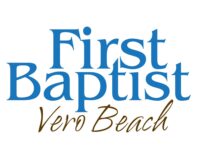Our story…


Christ-Centered – We are Christ-centered in ministry and discipleship, with a focus on growing in God’s Word.


Our Beliefs
First Baptist Church is proud to affirm the 1963 Baptist Faith and Message.
We believe in these four fragile freedoms…
Bible Freedom
Baptists believe that the Bible is the record of God’s revelation to all humankind. Believers are free to read and interpret the Bible under the lordship of Christ and the leadership of the Holy Spirit. Baptists are not beholden to any creeds or mediators outside of scripture.
Soul Freedom
Baptists practice “Believer’s Baptism”, which affirms that people may only come to Christ on their own volition, not by force or coercion. Historically and Biblically, Believer’s Baptism is by immersion (unless otherwise restricted by special needs, disability, or other extenuating circumstances).
Church Freedom
Each Baptist church is an autonomous Body of Believers with its own polity, rules for membership, and leadership. This comes from the congregational model of authority, in which the congregation (often guided by a church covenant or constitution) determines the values, identity, mission, and ministry of the local church. Additionally, each church establishes the scope and nature of its partnerships in the local and global communities and is not under the auspices of any outside authority or influence.
Religious Freedom
Baptists believe that people have an inalienable right to the freedom of religion. The earliest Baptists championed the separation of church and state in the American colonies and, later, the United States. In the words of Walter Shurden, Baptists affirm that “religious liberty is for all, not for a selected few nor even for an overwhelming majority.”
